By Taylor Witkin. Reprinted from SustainFish.com
I’ve been taking the Block Island ferry from Point Judith, RI since before I could walk. I remember the smell of fish from the Galilee State Pier and seagulls dive-bombing fishing boats, fighting for scraps. There were always long lines of cars waiting to park and tourists waiting to board a ferry or order lobster rolls and fried clams. My trip to Point Judith last week brought back memories, but in early December, it was distinctly different from my time there as a kid.
I pulled in to the parking lot at Galilee, not sure what to expect. Instead of catching a ferry, I was there to work, to talk to fishermen and seafood dealers; to spread awareness about Eating with the Ecosystem, a small non-profit with the goal of connecting each level of Rhode Island’s seafood supply chain. Compared to the summer, Galilee was a ghost town. I found a few people on Superior Trawl, repairing nets and lines. A handful of guys were out on their boats, probably doing maintenance. The weather had been lousy recently and fishermen had only been out a handful of days in the past few weeks. There were no tourists and the salt water taffy store was boarded up for the winter.
While there weren’t many people to talk to, it was nice to get a feel for the place, so I know what to expect in future trips.
Points of View
It didn’t take long to get a sense of how many fishermen in Galilee feel about fishery regulators.
As I’ve said before, describing fishermen and government regulators as mortal enemies is unhealthy. Both have the same desire: a stable, sustainable fishery. Yet they see fisheries in different ways. Scientists and regulators look at the entire ecosystem on a long time scale and make decisions based on the trends they see in the data. By ensuring a healthy ecosystem, they ensure a stable catch, at least in theory. An individual fisherman has short term goals: catch fish now, make money, and put food on the table. Unfortunately, given the tendency to overfish and to fish down the food chain, the government often decides that short term sacrifices (i.e. fishery closures, quotas, and gear restrictions) are required to protect marine resources for the future. Those sacrifices are borne by today’s fishermen.
The bumper sticker above and recent reporting on the Gulf of Maine cod fishery closure indicate that fishermen think the government is out to get them. These sentiments, expressed by fishermen in public, grab the headlines and obscure the fact that the goals of fishermen and the government are similar. Yet, one-on-one, a captain that I spoke to did not echo the words on the bumper sticker. He was mad, but not irrational. Away from the eyes and ire of his peers, a fisherman may admit that regulations and restrictions are necessary to protect a fishery.
One of the biggest frustrations for the captain I spoke to is not that regulations exist, as the Boston Globe might have you believe. It’s that his catches, day-to-day, do not match up with the quotas that he adheres to. For example, though he currently catches a lot of monkfish, he discards much of it to stay under the limit. In other words, he’s mad about wasting a resource. Discarding dead fish does nothing for the ecosystem and deprives fishers of profit. If Point Judith fishermen have to discard a substantial portion of their monkfish, they feel that something is wrong with the quota. I get the feeling that because fishermen are out on the water almost every day, they think they know, better than the scientists/regulators, what is best for their fishery. They certainly have a more up-to-date picture of the make-up of their hauls.
In the end, it all boils down to the scales at which fishermen and scientists/regulators look at fisheries. If cod quotas were based exclusively on the small pocket of cod that Gloucester fishermen target, then the closure of the fishery would be premature and unfair. But that’s not how it works. A fishery closure is based on more than just one fishing ground. We know that cod are in major trouble because they have disappeared from everywhere but Gloucester’s fishing grounds.
Fishermen don’t have the luxury of looking at big data. They know their fishing grounds intimately and can provide valuable information that the government should listen to more closely. But fisheries managers do not have the luxury of solely protecting the livelihoods of today’s fishermen; the resource and future user’s access to it must also be protected.
Brief thought on the history of overfishing
Fishing is the oldest profession, so not surprisingly overfishing is one of the oldest forms of environmental degradation. Yet there are many instances of sustainable fishing; the Bristol Bay sockeye harvest is forecasted to be the largest in years, “with enough to meet all escapement goals and provide for a commercial harvest of more than 40 million fish in the Alaskan salmon fishery.” If fisheries around the nation are being rebuilt, shouldn’t we be able to find a way to eliminate our role in New England’s fishery crashes?
About Taylor Witkin
Taylor Witkin is a recent Colby College graduate, scuba diver and self-proclaimed gourmet. His work on community supported fisheries has been published in Fisheries Research. When Taylor is not exploring seafood systems, from beneath the waves or at farmers markets, you can find him on an ultimate Frisbee field or ski slopes.




